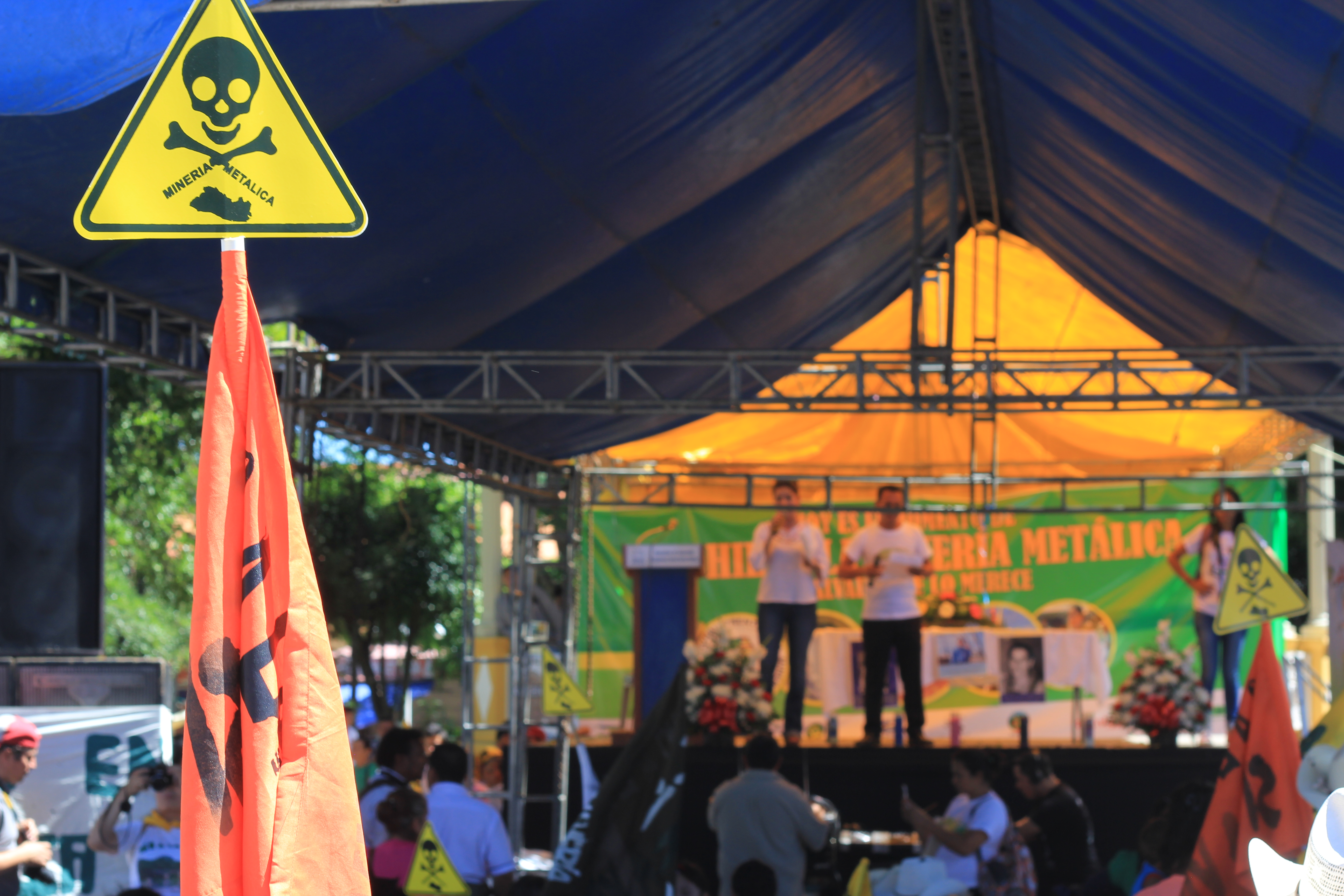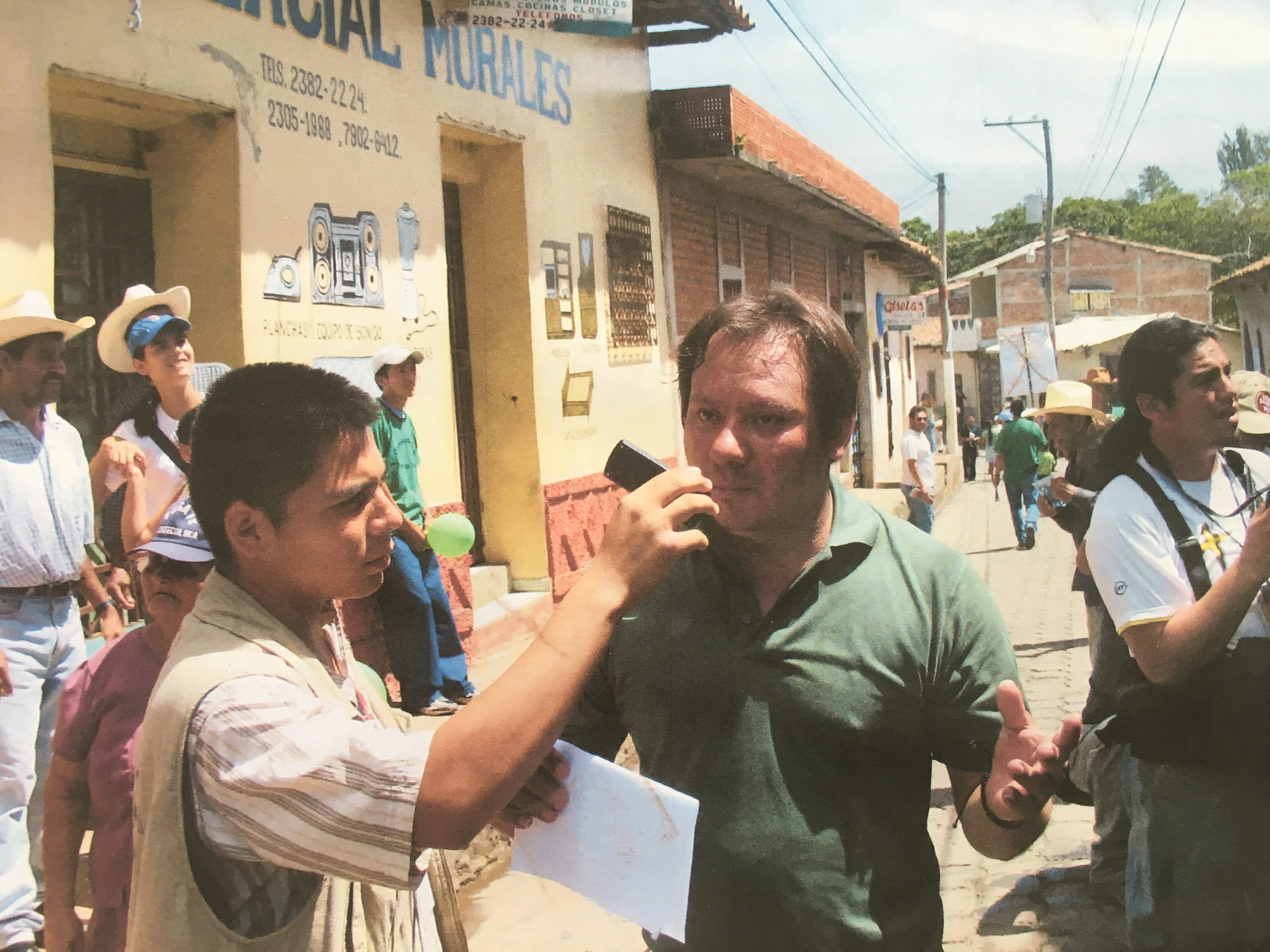9 July 2009
San Isidro, El Salvador
Marcelo Rivera
Profession
Community
Motive
Environmental and indigenous activism
Political dissent


Adolfo Olivas


Ahmed Divela


Amit Jethwa


Artan Cuku


Babita Deokaran


Bayo Ohu


Berta Cáceres


Bhupendra Veera


Bill Kayong


Boris Nemtsov


Boško Buha


Chai Boonthonglek


Charl Kinnear


Chut Wutty


Chynybek Aliev


Cihan Hayirsevener


Daphne Caruana Galizia


Darío Fernández


Derk Wiersum


Deyda Hydara


Édgar Quintero


Edmore Ndou


Edwin Dagua


Federico Del Prete


Fernando Villavicencio


Gezahegn Gebremeskel


Gilles Cistac


Habibur Mondal


Igor Alexandrov


Jacob Juma


Ján Kuciak


Javier Valdez


Joannah Stutchbury


José Ángel Flores


Jules Koum Koum


Kem Ley


Luis Marroquín


Mahamudo Amurane


Marcelo Rivera


María Elena Ferral Hernández


Marielle Franco


Milan Pantić


Milan Vukelić


Muhammad Khan


Nelson García


Nihal Perera


Oliver Ivanović


Orel Sambrano


Perween Rahman


Peter R. de Vries


Rajendra Singh


Salim Kancil


Sandeep Sharma


Sikhosiphi Radebe


Slaviša Krunić


Soe Moe Tun


Victor Mabunda


Virgil Săhleanu


Wayne Lotter


Yuniol Ramírez


Zezico Guajajara
9 July 2009
San Isidro, El Salvador
Profession
Community
Motive
Environmental and indigenous activism
Political dissent
When he was a teenager, Miguel Ángel Rivera joined his older brother, Marcelo, to do community work in their home town of San Isidro in the department of Cabañas, El Salvador. In the early 1990s, they would collect donated books and take them to an abandoned building that had been used to store cadavers during the country’s civil war. This became San Isidro’s first library and cultural centre.
The Rivera brothers soon founded the Asociación San Isidro Cabañas (ASIC). Their organization has, as Miguel Ángel explained, an ‘umbilical connection’ to two other prominent community groups in the region – the Asociación de Desarrollo Económico Social de Santa Marta (ADES) and Radio Victoria.
Cabañas is a traditional stronghold of the Salvadoran military, with links to conservative politicians and businessmen. ‘There had been no protests here ever, not even during the war,’ said Miguel Ángel. Against this backdrop of terrified silence, the brothers began to raise their voices and those of the community.
Their work attracted a violent backlash when they launched a campaign to raise awareness about the potential dangers of gold mining. Pacific Rim, a Canadian mining corporation that was later sold to Australian company OceanaGold, had been granted permission to prospect for gold and silver in Cabañas. When they discovered deposits, the company solicited permission to build a mine. They also launched a public-relations campaign, promising that the mine would bring jobs and progress, and that the environment would remain healthy. The company tried to allay fears around two concerns in particular: its plans to strip gold from the rock using cyanide, and a decision to power the mine using the Lempa River, El Salvador’s main source of drinking water.
Cabañas community leaders went to neighbouring countries to visit opencast mines, similar to the one that Pacific Rim planned to develop. Miguel Ángel visited a mining site in Honduras. He remembers encountering a giant pile of rock that had been stripped with cyanide; there was an overpowering chemical smell and a school next door. The people who lived around the mine, he saw, were missing teeth and suffered from rashes on their skin.
The locals spoke to him about having lost their agricultural livelihoods when the mining affected the water table, and wells dried up. Miguel Ángel recorded these interviews and, on his return, ASIC showed the video to the communities of San Isidro. At the same time, Marcelo began speaking out on Radio Victoria and leading environmentalist marches.
In June 2005, people from the state partnered with community groups across the country and formed a central coordinating committee, the Mesa Nacional Frente a la Minería Metálica.
But as opposition grew to the proposed mine, Pacific Rim was making headway with El Salvador’s political elite. Miguel Ángel said the company had a firm strategy in place by 2007. He believes that while they were canvassing bureaucrats in the capital to expedite the licensing process, Pacific Rim also established mutually beneficial relationships with various mayors across Cabañas. Leveraging the mayors’ political networks, they would hire supporters to promote mining within communities. These moves by the mining firm exacerbated tensions. The list of parties who had a vested interest in Pacific Rim’s success was growing. Their most visible obstacle was Marcelo Rivera.
‘He was doing something that had never been done in San Isidro,’ said Oscar Beltrán, a journalist at Radio Victoria, explaining how Marcelo was challenging long-standing corruption and traditional power structures by ‘confronting them directly’. It did not go unnoticed – he barely survived a first murder attempt, when a truck with unidentified men tried to run him over. Yet he continued to serve as ‘the visible face of protest,’ Beltrán said.
In October 2005, a United States scientist named Dr Robert Moran released a scathing review of the company’s environmental impact exam. The Salvadoran state was divided over the issue when then Salvadoran Ombudswoman for the Environment, Yanira Cortez, voiced her concern about the viability of mining in El Salvador.
The protests in Cabañas were ‘a desperate cry in the face of the threat that these projects may represent to life,’ Cortez later stated in a deposition. She said that the state’s decision to continue entertaining Pacific Rim’s bid showed a ‘disregard for human beings in favour of private financial interests’. Pacific Rim’s progress in acquiring a concession then faltered and, in 2009, with pressure against the mining project mounting from civil-society groups and the media, the Salvadoran president announced that the government would not grant the company a mining concession. In an attempt to reverse this, Pacific Rim sued the government of El Salvador in April 2009 at the International Center for Settlement of Investment Disputes (ICSID) – a World Bank trade dispute settlement tribunal in Washington, DC.
Two months later, on 18 June, Marcelo Rivera was kidnapped. His body, which, according to the autopsy, showed signs of torture, was found about three weeks later at the bottom of a well in Cabañas.
The murder kicked off a wave of violence that lasted eight months, during which at least four anti-mining activists were murdered and many other people received death threats, including six journalists at Radio Victoria. Several people fled El Salvador, fearing for their lives. ‘Every time we heard a car outside, we thought, “Shit, they’re coming to get us”, ’ said Miguel Ángel.

Residents of Cabañas, El Salvador, at a celebration of El Salvador’s win in a World Bank tribunal over Canadian mining company Pacific Rim. They hold signs protesting against mineral mining, 4 November 2016

A Radio Victoria journalist interviews Marcelo Rivera
Local law-enforcement officers said that Marcelo had been drinking with members of a gang when a fight broke out, and that his murder was the result of ‘common delinquency’. In September 2010, three gang members were convicted of killing Marcelo, and three more sentenced for covering up the case.
Given the details of Marcelo’s activism and the context in which he was murdered, this was an unsatisfactory legal decision. Many believe his murder was, in reality, an example of a phenomenon that is frequently encountered in El Salvador, where gangs are hired as hitmen to carry out the dirty work of powerful people linked to organized crime. ‘It wasn’t just a small group,’ said Beltrán. ‘This was a large group of armed people who had military experience. The shells left behind where they shot Ramiro [one of the other victims] were from an M16 rifle. Those are military-issue only.’ While these details fuel speculation, there have been few answers. But it seems clear that the violence was intended to advance pro-mining interests. ‘It’s not our job to investigate,’ says Miguel Ángel.
A decade later, investigations have failed to reveal who masterminded Marcelo’s murder. Pacific Rim has repeatedly denied involvement in his murder and the killings of other activists.
Beltrán said that the murder was intended to send a message: ‘“If we’re capable of doing this to Marcelo, we can do anything to you.” Emotionally, it hit us. Confronting the mining company meant confronting economic powers. But for us to be silent would have been inconsistent with Marcelo’s work.’
In October 2016, Pacific Rim – now OceanaGold – lost its case at the World Bank’s ICSID tribunal. And in 2017, El Salvador became the first country in the world to impose a ban on all metal mining.


14 August 2005
Esteli, Nicaragua
Adolfo Olivas


2 March 2016
Honduras
Berta Cáceres


6 November 2011
Penonomé, Panama
Darío Fernández


15 May 2022
Santander de Quilichao, Colombia
Édgar Quintero


7 December 2018
Cauca, Colombia
Edwin Dagua


9 August 2023
Quito, Ecuador
Fernando Villavicencio


15 May 2017
Culiacán, Mexico
Javier Valdez


18 October 2016
Tocoa, Honduras
José Ángel Flores


9 May 2018
San Luis Jilotepeque, Guatemala
Luis Marroquín


30 March 2020
Papantla, Veracruz, Mexico
María Elena Ferral Hernández


14 March 2018
Rio de Janeiro, Brazil
Marielle Franco


15 March 2016
Honduras
Nelson García


16 January 2009
Valencia, Venezuela
Orel Sambrano


13 October 2017
Santo Domingo, Dominican Republic
Yuniol Ramírez


31 March 2020
Zutiwa, State of Maranhão, Brazil
Zezico Guajajara